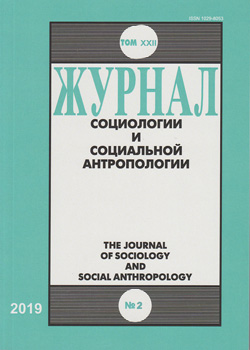When Insult is Interpreted as a Joke? Personal and Situational Factors of Cyberbullying Bystander Moral Disengagement
Keywords:
cyberbullying; cyberbullying bystander; attributive approach; factorial experiment; moral disengagement.
Abstract
This article discusses results of experimental study of the factors which are engaged in ascription of the different motivations to the bystanders of cyberbullying. This process could be interpreted as one the possible mechanism which influences the moral disengagement. It was supposed that the process of motives ascription is affected by personal characteristics of the author of the communicative product (message) and psychological peculiarities of the member of the experiment. Personal factors were selected on the basis of behavioral studies of witness of cyberbullying. Situational factors were chosen also on the basis of the previous studies; in addition the author used attributional approach for the explanation of common sense. The hypotheses were tested in the factorial experiment. This experiment took place in the August of 2018 in groups of students on the Russian social network «Vkontakte». The between-subjects experimental design with 12 scenarios was used. 460 students participated. The results of the study show that the higher the level of narcissism of the person the more eager is he / she to attribute cyberbullying to the user of the social network. Participants of the experiment with high levels of machiavellism and psychopathy ascribe the same behavior to the trolling. Age and narcissism of the message author also were significantly connected with the process of motive attribution. The results of this study broaden the knowledge about the behavior of bystanders in the Russian segment of the Internet.
Published
2019-09-20
How to Cite
Mikhailova, O. (2019). When Insult is Interpreted as a Joke? Personal and Situational Factors of Cyberbullying Bystander Moral Disengagement. ZHURNAL SOTSIOLOGII I SOTSIALNOY ANTROPOLOGII (The Journal of Sociology and Social Anthropology), 22(2), 55-92. Retrieved from http://jourssa.ru/jourssa/article/view/290
Section
Sociology of Morality

